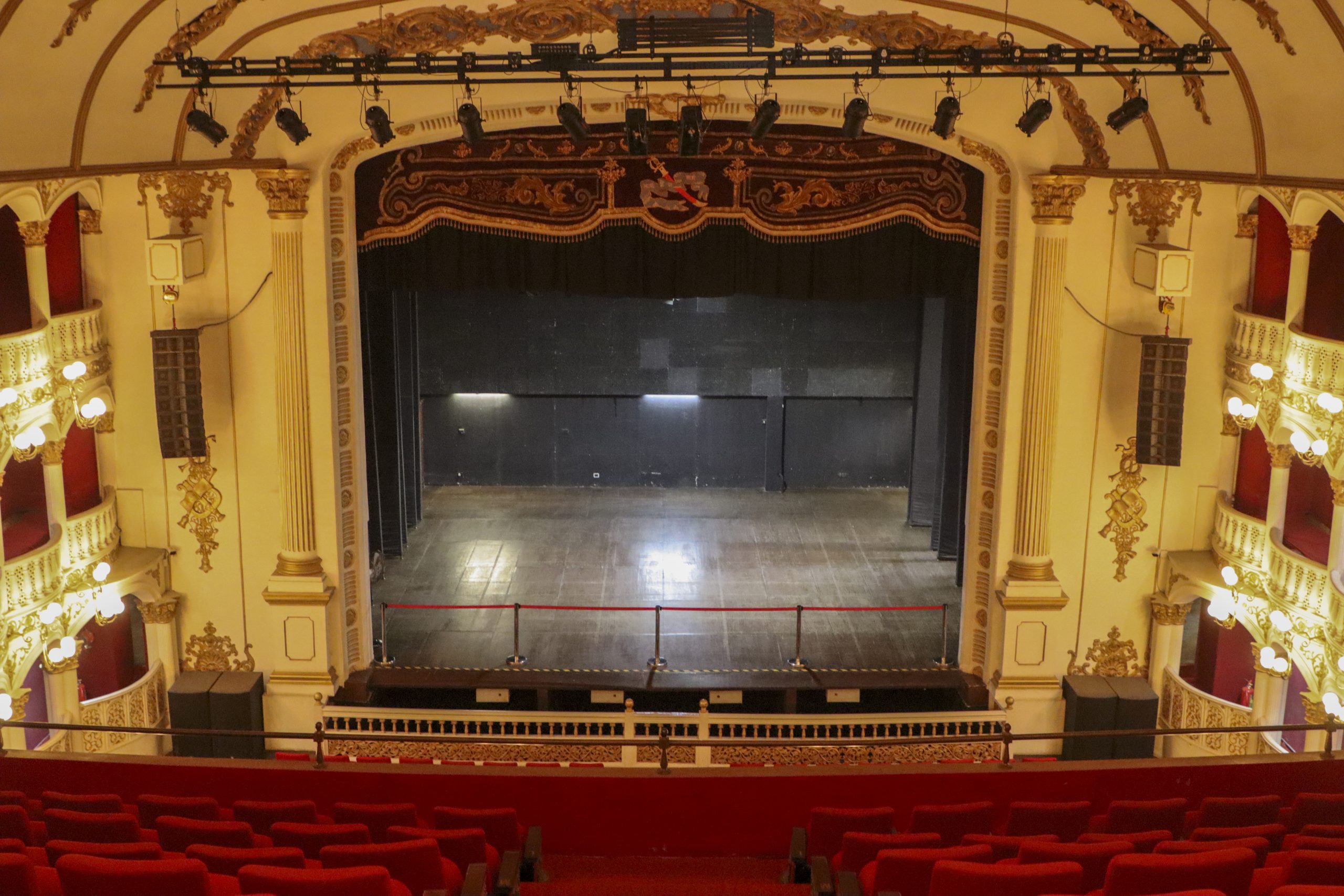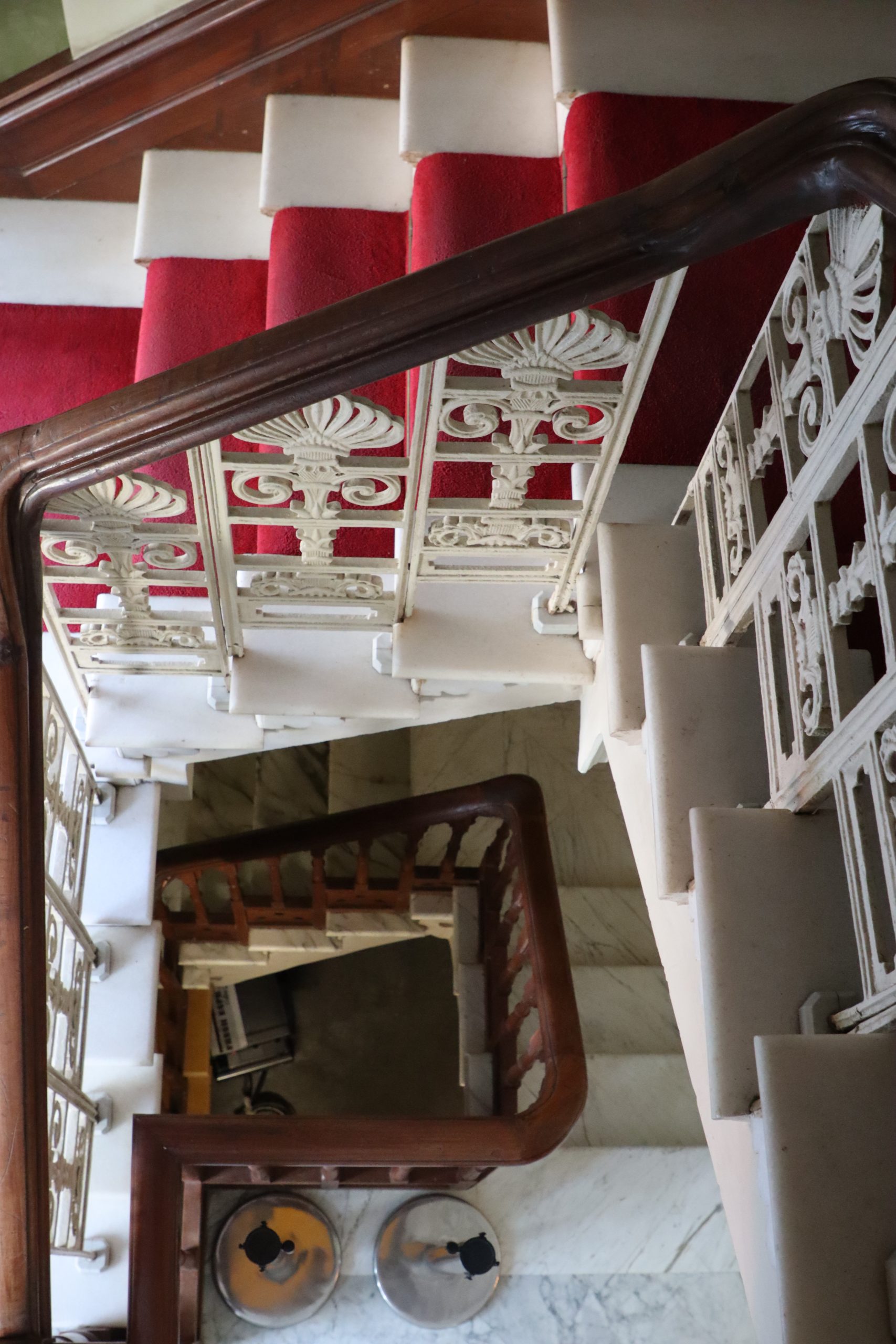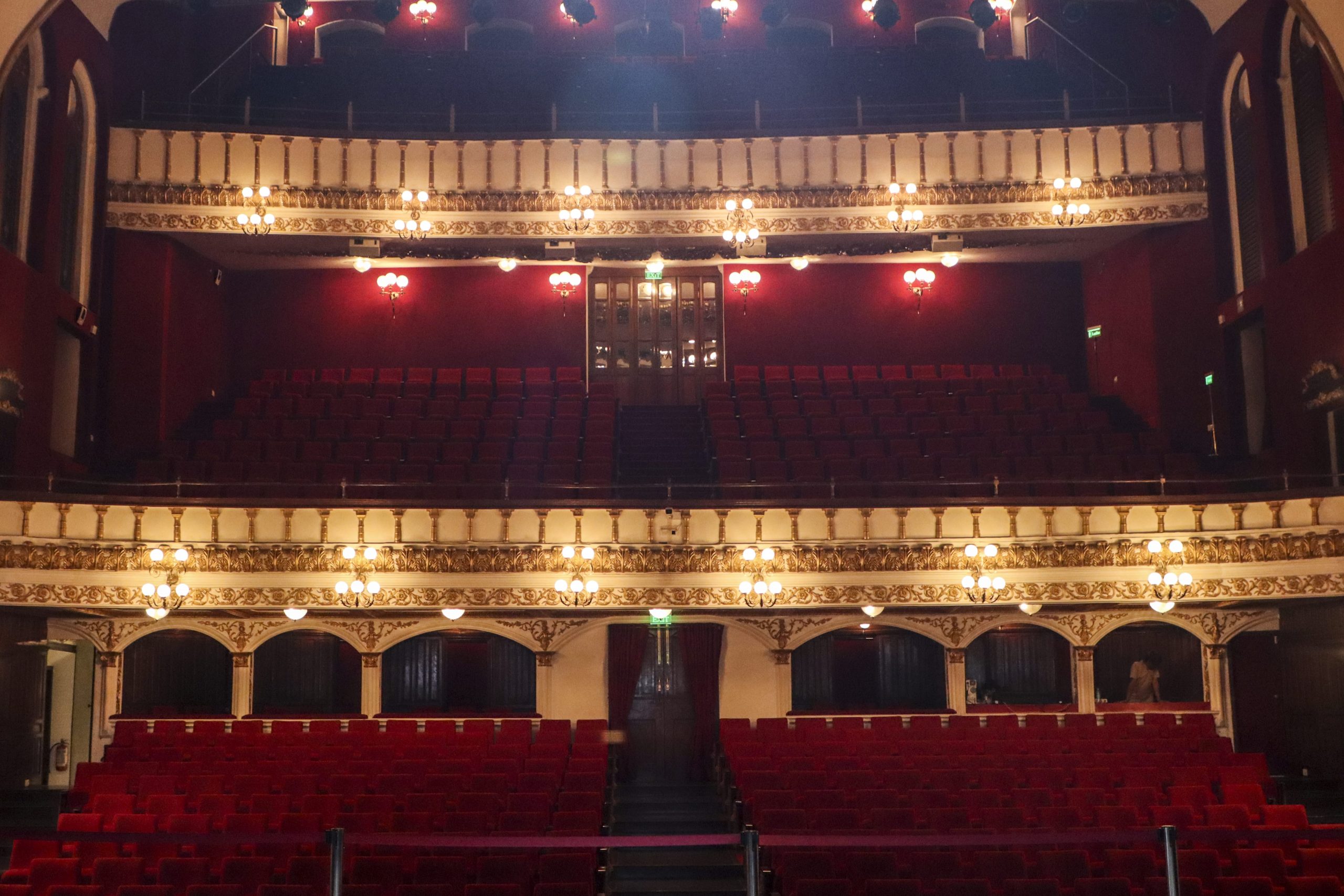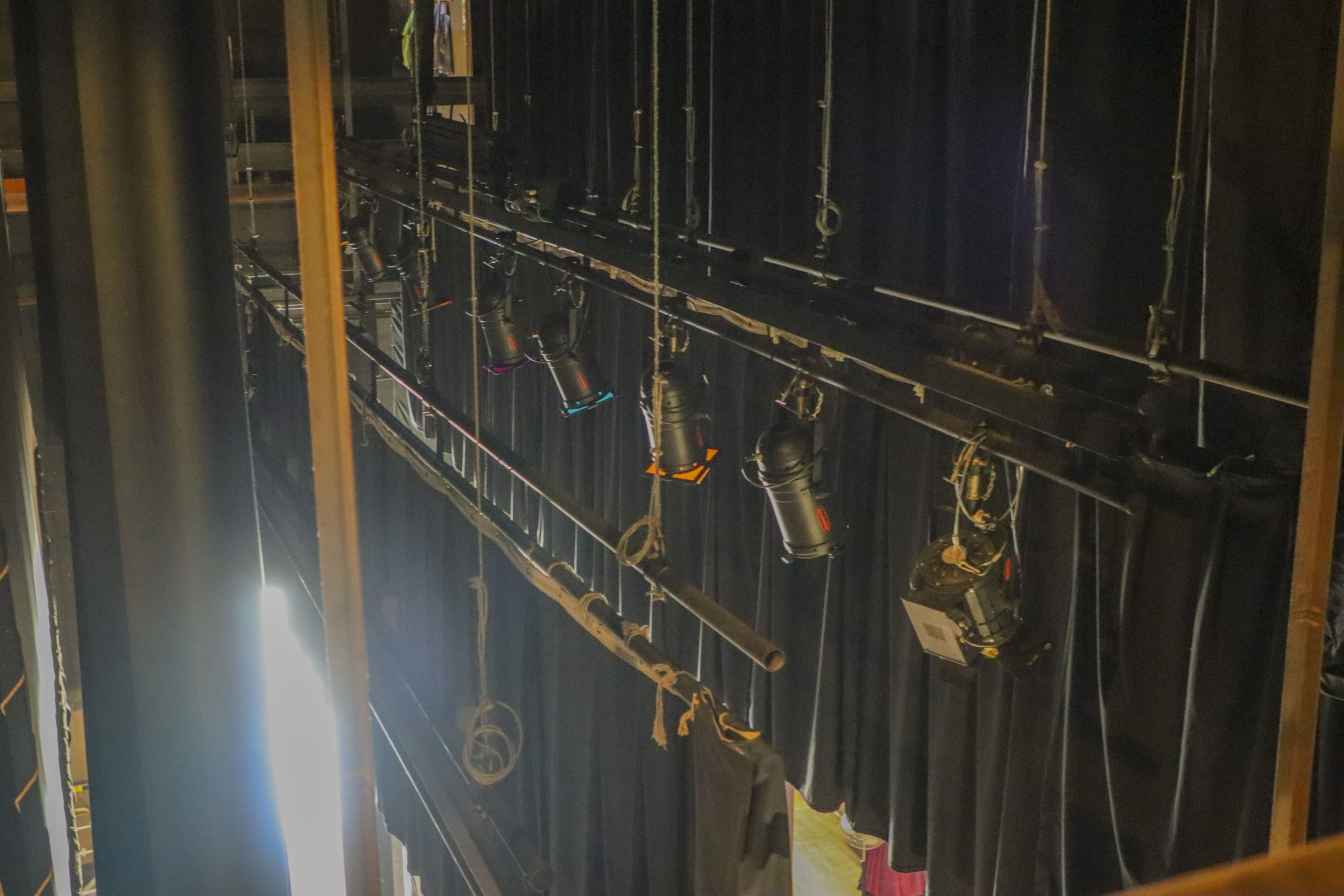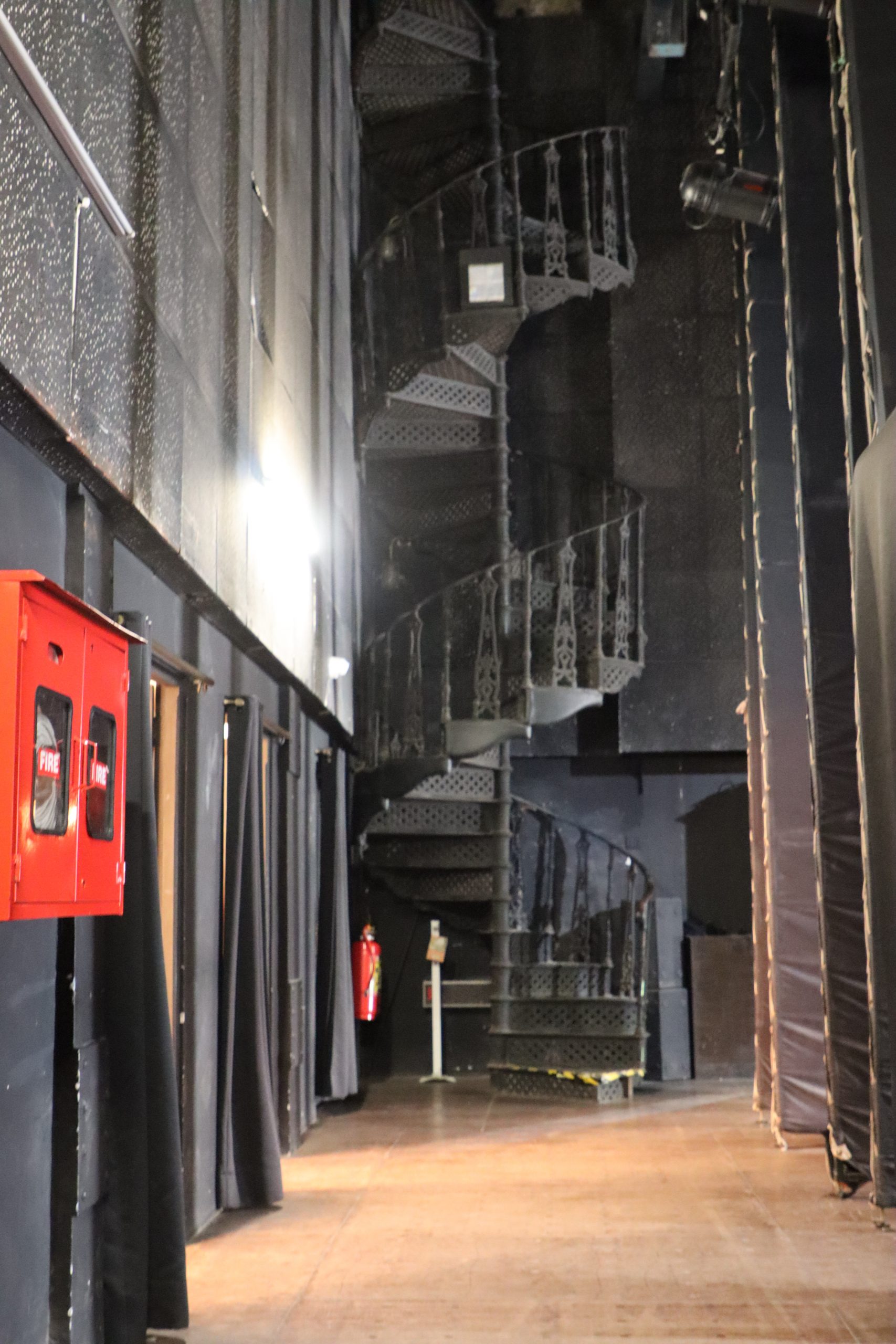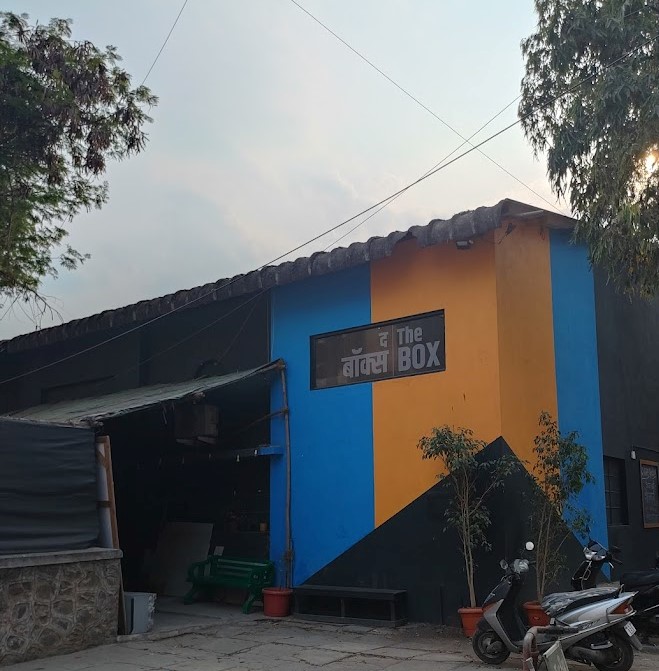There is a lot of weight given today to holding space. In the context of social or professional circles, holding space for others is being seen as a crucial aspect of care, of balance, of the health and well-being of a society or community and the people it encompasses.
We’re tweaking this sentiment – and mixing metaphors while we’re at it! – to turn the spotlight on to people who hold our beloved physical spaces for us. They’re there before us and they stay much after, they’re at work on holidays, during all kinds of festivals and lately, even during a global pandemic.
Starting this month, Theatre Ink will introduce you to some of these people. These people who tread the boards more than most, who watch more shows than most, and who know more than they let on about the theatre – which is both the play, and the building that welcomes it.
Theatre Ink will visit a space a month. Subscribe for updates.
Entering the Royal Opera House | by Srishti Ray | photos by Arun Gupta
When we stepped into the grandeur that is the Royal Opera House, Mumbai (ROH), it didn’t feel like we were in an arts and culture venue, it felt like we had entered someone’s home.
We were there to talk to the people who run it, and as we spoke and laughed and learned, it dawned on us that this homeliness was a reflection, a direct consequence of the care they manifestly held for the space.
Like all good stories, we began with ‘back in the day’. Mr Rangilal Divakar, the senior manager at the ROH has dedicated over four decades of his life to what he calls his “second home” (this was clearly a recurring theme). He was hired way back in 1982 and he marveled at how things have changed: that ticket prices were 1 anna to today’s two thousand; how audiences used to spit on the walls, to now, how they even clear their own plastic bottles… And obviously the one big change from then to now, the ringing mobile phones.
He takes particular pride in two things: that in his journey to Senior Manager, he has done every conceivable job at the theatre, from housekeeping to ticketing to ushering. “How else could I supervise the people doing these jobs, if I hadn’t done them myself?”
And his second point of pride: the fact that everyone who enters the space is treated with the utmost courtesy and respect, and that any reports of off-colour behaviour from anyone at ROH is dealt with immediately and firmly.
We asked him if there were regulars in the audience whom he remembers and he said, “That Sagar will be able to tell you. He meets them more regularly.”

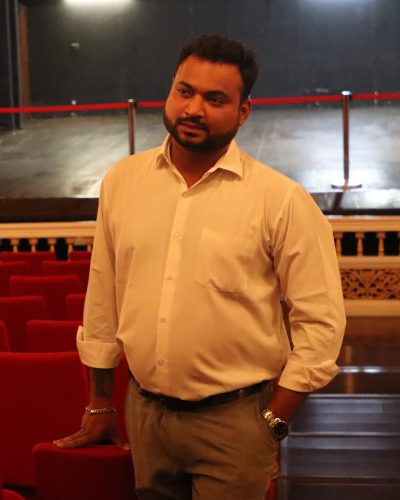
Mr Sagar Sumbhe, the venue manager, was listening in… At one point, when Mr. Divakar was telling us something about when Prithviraj Kapoor lived on the (now absent) third floor of the building, he turned to me and said “Today I learned something new”.
This too, is a remarkable thing. Mr. Sumbhe, like most of his colleagues, is fascinated by the legacy he is now a part of. The stories they have heard are a whole other article, maybe we’ll revisit it!
He has been at ROH since it reopened in 2016. And he also brought up the familial aspect of working there. He swears that everyone he’s spoken to says that they would work at ROH at the drop of a hat; that during the pandemic, every single member of the staff was retained and given their salaries on time, every time.
Mr Tilak Zala, also from the admin department, chimed in. During the pandemic, he said, some of the staff walked kilometers to reach the venue, and others had to face the wrath of the police on their way. Even as we were about to ask why anyone was coming to the venue, he made it clear that none of the staff HAD to, they were all instructed to WFH like the rest of the world.
But they came. To preserve the venue. It had been just 3 years since the reopening and the carpets, the technical equipment, the flooring, everything was new and a matter of great pride. So they came, to make sure it all stayed new.
Talk about holding space.
He credits a large part of this positive, caring attitude to Mr. Ashish Doshi, the Hon. Director who oversaw the restoration. Mr. Doshi is, to put it simply, a performing arts aficionado who in between his other pursuits, finds the passion and time to continue to oversee the operations at the theatre. He’s there on most Saturdays, he said over a phone call. And he’s always happy to meet theatre makers and enthusiasts.

Hmmm… We’re sort of going in reverse, because Mr. Zala was the first person we interacted with at ROH; he was the one who assiduously coordinated our visit on email.
Let’s stay with our reverse chronology for a bit. Now may be a good time to share a little of our chat with Mr. Naren Kapoor, the sound engineer, who was the first person we met at the venue. As is perhaps customary for sound engineers, he preferred to be heard rather than seen. The view in the picture below is his default field of vision: from the sound booth looking out onto the stage and the audience.
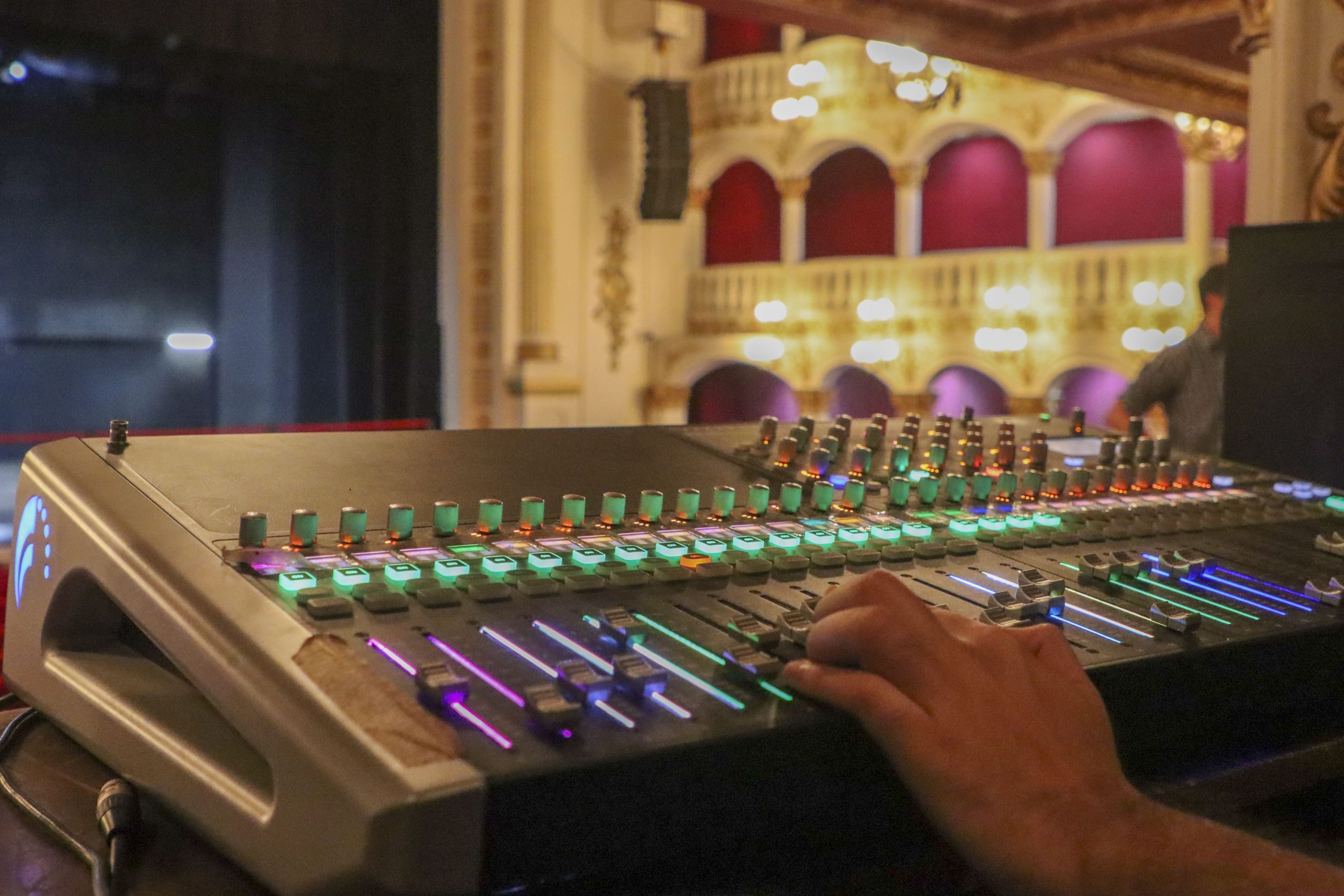
With this vantage view, Mr. Kapoor is primed to give us some great stories of audience and performer behaviour. But he kept mum, resisting all our attempts at extracting some of the more fun or bizarre incidents that every venue has witnessed. When he’s mixing, his entire focus is on the job. And when he’s not mixing, it’s on the person who’s doing the job. He did say that there are fewer concerts from around the country and elsewhere now, a ripple effect of the pandemic. He misses those. But what he doesn’t miss are the mobile phone interruptions. “It’s really better now”, he insists, much to our surprise. Maybe there’s hope for us yet.
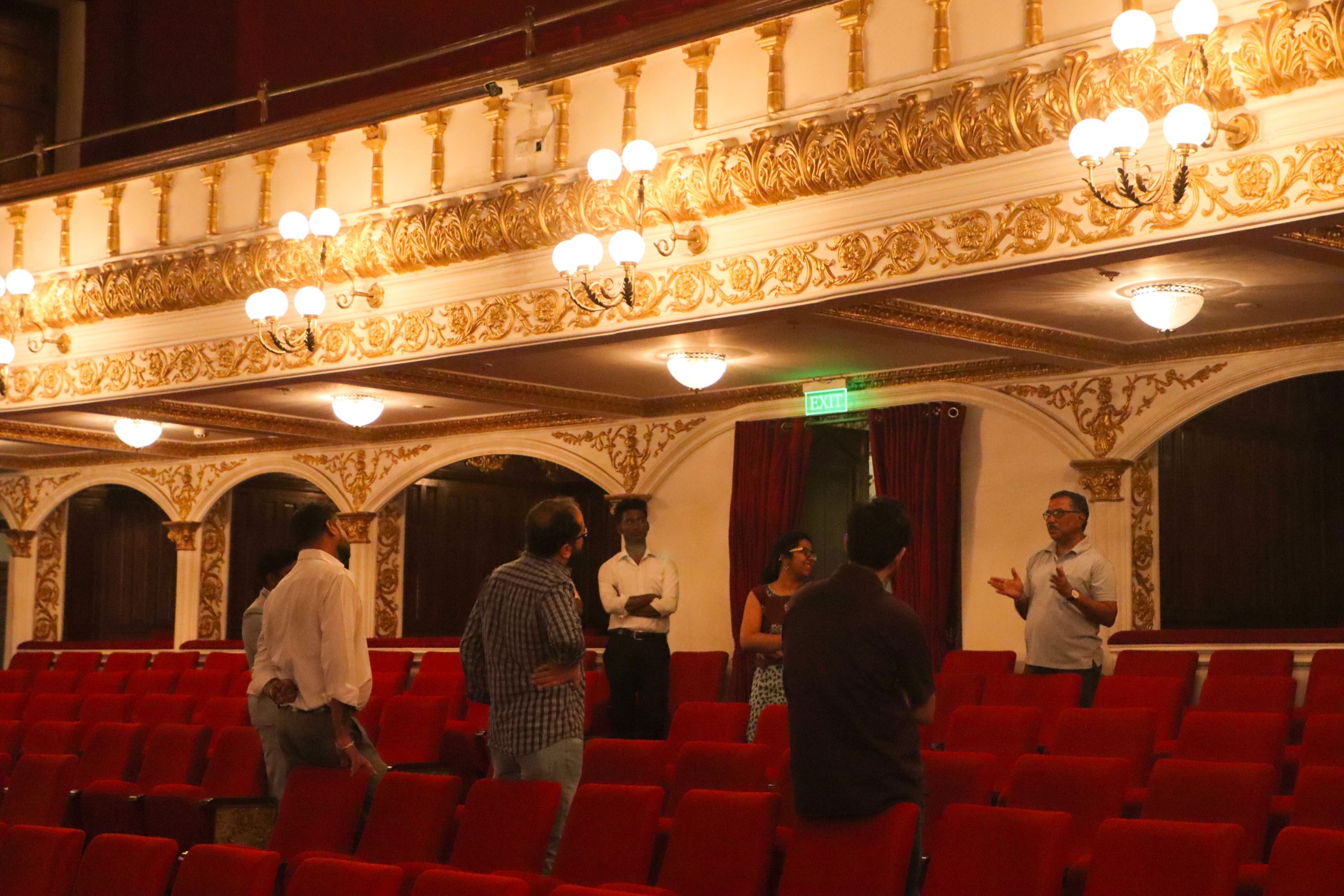
Back to the impromptu round table conversation, we asked the admin team again about audience members. Mr. Sumbhe recalls this father-daughter duo who are there every other week, watching nearly every performance. He also talked about this audience member who always, always booked the same seat. [Pro-tip: The seats in the first two rows of the balcony are among the best in the house, for both the acoustics and the stage-view.]
Do you have guided tours, we asked when we went backstage and stared up at the wrought iron spiral staircase in the stage right wing. Mr. Prashant Ghatye, who accompanied us, nodded. Mr. Divakar agrees, saying that those interested should call the office number or enquire when they’re there next. It’ll be well worth it!
As we wound up the conversation (we didn’t want to, we had to) it struck us that the staff is a microcosm of Mumbai, in a way. People come from Virar and Sion, from Mulund and Worli.
We met Smita ji and Dipti ji, the beaming housekeeeping team who know the ins and outs of the building; Siddhesh ji, who if you’re lucky will help you to your seat with immense charm. And on our way out, Pratibha ji, the security guard who had welcomed us with a chirpy “hello”.
We’ll try and leave you with the images in our heads as we left them all. Images of the building.
Note to self: Must climb the spiral staircase on our next visit!!



